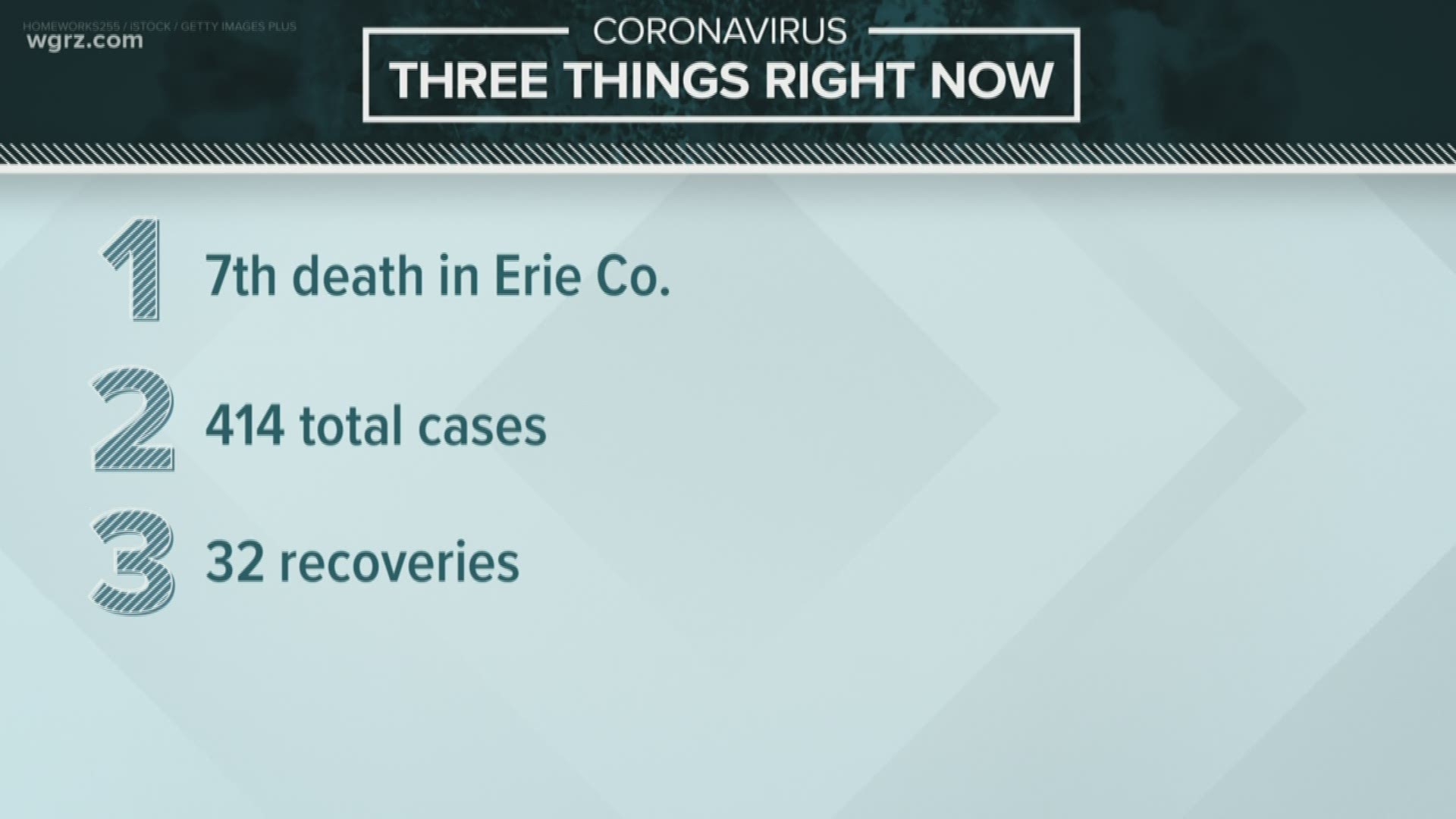NIAGARA COUNTY, N.Y. — The Niagara County Department of Health has confirmed 13 new cases of COVID-19 Monday morning, bringing the total number of cases in the county to 51.
The county will hold a press conference at 2 p.m. via live stream. You can watch it here:
Here's a breakdown of how many cases each city has.
- 10 in the City of Niagara Falls
- 10 in the Town of Wheatfield
- 6 in the City of Lockport
- 6 in the Town of Lockport
- 6 in the City of North Tonawanda
- 4 in the Town of Lewiston
- 3 in the Town of Pendleton
- 2 in the Town of Newfane
- 2 in the Town of Porter
- 1 in the Town of Somerset
- 1 in the Town of Niagara
As of Friday, Niagara County had 46 people in quarantine and 53 people who have completed quarantine. They also had 25 people in isolation and three who have recovered from the coronavirus.
RELATED: Cuomo stresses need for ventilators in New York State; Positive COVID-19 cases continue to rise
Coronavirus symptoms
The symptoms of coronavirus can be similar to the flu or a bad cold. Symptoms include a fever, cough and shortness of breath, according to the Centers for Disease Control.
Most healthy people will have mild symptoms. A study of more than 72,000 patients by the Centers for Disease Control in China showed 80 percent of the cases there were mild.
But infections can cause pneumonia, severe acute respiratory syndrome, kidney failure and even death, according to the World Health Organization. Older people with underlying health conditions are most at risk.
The CDC believes symptoms may appear anywhere from two to 14 days after being exposed.
Human coronaviruses are usually spread through...
- The air by coughing or sneezing
- Close personal contact, such as touching or shaking hands
- Touching an object or surface with the virus on it, then touching your mouth, nose or eyes before washing your hands.
Help stop the spread of coronavirus
- Stay home when you are sick.
- Eat and sleep separately from your family members
- Use different utensils and dishes
- Cover your cough or sneeze with your arm, hot your hand.
- If you use a tissue, throw it in the trash.
Lower your risk
- Wash your hands often with soap and water for at least 20 seconds. If soap and water are not available, use an alcohol-based hand sanitizer.
- Avoid touching your eyes, nose, and mouth with unwashed hands.
- Avoid close contact with people who are sick.
- Clean and disinfect frequently touched objects and surfaces.
- If you are 60 or over and have an underlying health condition such as cardiovascular disease, diabetes or respiratory illnesses like asthma or COPD, the World Health Organization advises you to try to avoid crowds or places where you might interact with people who are sick.

